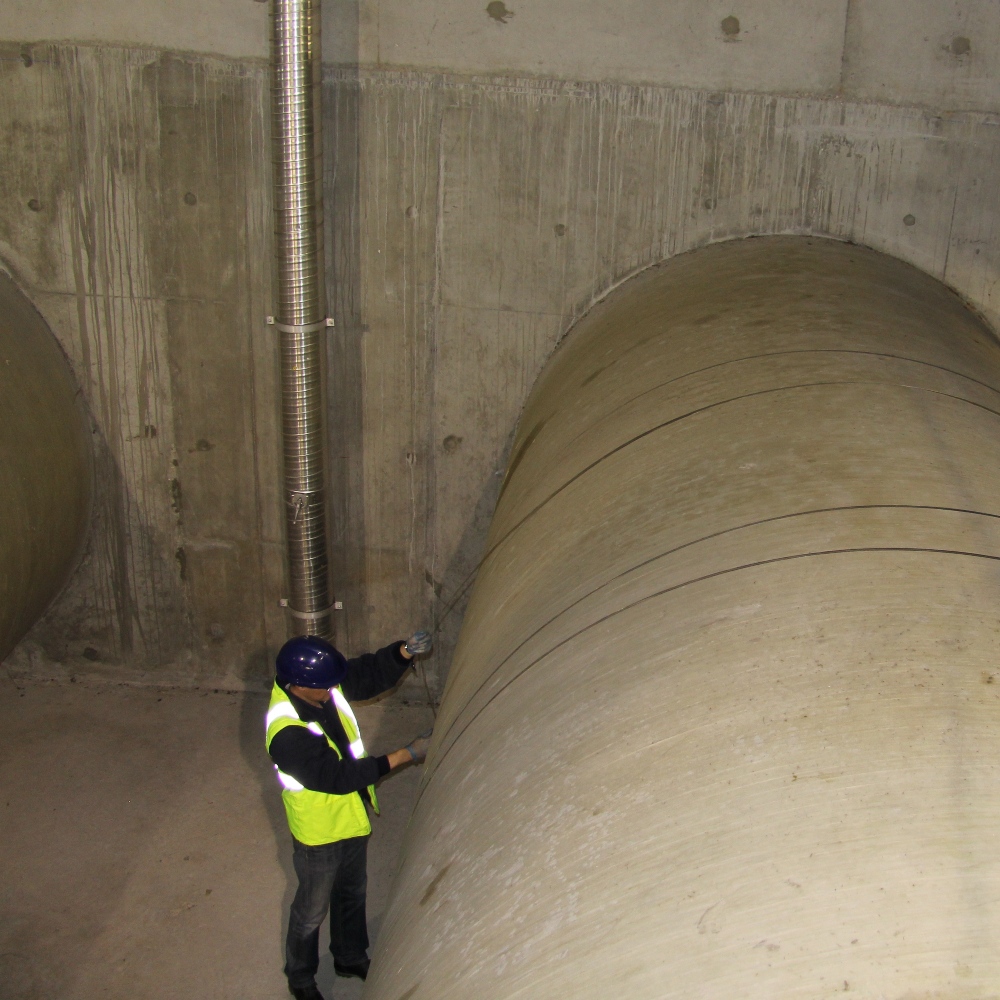Full pipe flow rate measurement
A full pipe (or pressure conduit) is a circular pipe entirely filled with liquid or gas fluid.
The probes used for taking the measurements can be external (clamp-on) or intrusive.
Clamp-on probes are designed for temporary measurements but can also be used for permanent measurements because they are safe and easy to install.
Intrusive probes can be divided into two categories: fixed probes, which are installed where there is an absence of pressure, and probes that can be removed under pressure.
–> These categories of probes can be used to take mono-chord or multi-chord measurements.
A measuring point in the mono-chord system is made up of:
- 1 converter
- 1 chord = 2 probes (marked as A and B on the diagram)
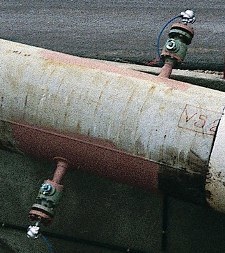 |
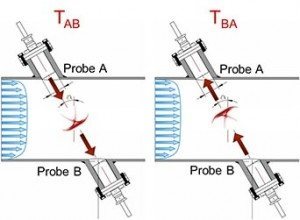 |
A and B probes are both transmitters and receivers. They alternately transmit to one other. The acoustic signal that spreads through the fluid is collected by the opposite probe.
The Upstream/Downstream and Downstream/Upstream propagation times are precisely measured (typically 0.2 ns).
The average speed along the acoustic path can be calculated using these times and the geometric position of the probes.
Mono-chord measurements can be used in the assumption that the velocity profile at the measuring point is symmetrical relative to the axis of the pipe. Using multi-chord measurements makes it easier to integrate speed profile irregularities. As such, multi-chord measurements can be used on straight lengths that are shorter than those required for mono-chord measurements.
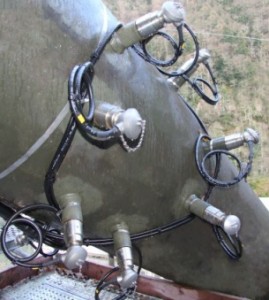 |
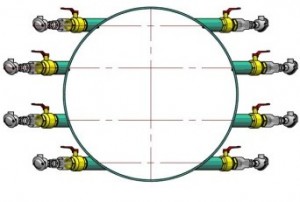 |
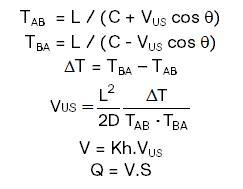
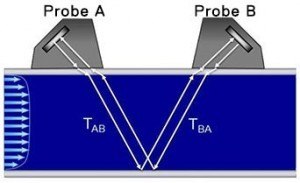 |
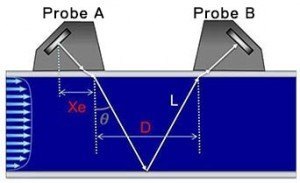 |
With:
TAB: propagation time of the ultrasonic wave from probe A to probe B
C: speed of sound
VUS: velocity or average speed on the ultrasonic path
Kh: hydraulic coefficient
Q: flow
D: Axial distance or Daxe (projected acoustic path along the pipe axis)
S: Section
Discover our products for full pipes:
Flow meters for liquids & flow meters for gas.
